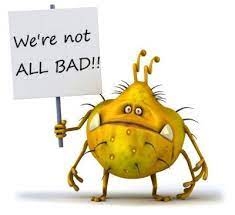
We associate bacteria with diseases. But are all bacteria bad? Bacteria are responsible for a number of diseases and infections. They include pneumonia (Streptococcus pneumoniae), meningitis (Haemophilus influenzae). strep throat (Group A Streptococcus), food poisoning (Escherichia coli and Salmonella), and a variety of other infections.
These bacteria are the reason why we need to wash our hands thoroughly before we sit down to eat. To protect ourselves from these bacteria, we also have developed a range of antibiotics, the drugs designed to inhibit the growth of bacteria and fight infections caused by them.
Yet, not all bacteria are bad. In fact, our bodies are home to trillions of ‘ good’ bacteria and other microscopic life forms, collectively known as the human microbiota. This includes fungi, archaea, viruses and bacteria. They inhabit just about every part of the human body, living on the skin, in the gut, and up the nose.
Not only do we live in harmony with these beneficial bacteria, but they are also essential for our survival. Good bacteria, such as lactobacillus, help our bodies digest food and absorb nutrients, and they produce several vitamins in the intestinal tract- including folic acid, niacin, and vitamins B6 and B12.
Picture Credit : Google



